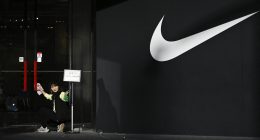

Countries like Germany especially have said they felt stuck between the US and China, unable to afford alienating either economic superpower. As the US threatens to punish countries who cooperate with Huawei by limiting intelligence sharing, China has also made clear that it may apply economic pressure against those who ban the company.
The Trump administration had hoped the UK would join the hard-liners. The security partnership between the two countries has long been America’s closest relationship; on September 12, 2001, MI6’s leader landed in Washington to aid the CIA. In 2005, amid a terrorism scare in DC, NSA Director Michael Hayden called his British counterpart to say that if something happened to the US capital, he was transferring authority to the UK. In recent years, the broader Five Eyes alliance has begun to assume a more public role, speaking collectively on issues like encryption and the WannaCry ransomware outbreak. It seemed to be transforming into something like a “NATO for the cyber age.”
The Huawei rift may not blow up that alliance altogether, but it does create serious new tensions.
Her Majesty’s government did set certain restrictions on Huawei’s participation in its networks. The company will not be allowed to build parts of the data-carrying “core” 5G networks, and would be limited instead to base stations and antennae that help power the consumer-facing portions. It will also be kept away from sensitive sites like military bases. (Due to the spectrum where the new 5G networks operate, coverage will require building super-dense concentrations of base stations and antennas, meaning that the infrastructure involved will dwarf previous generations of cellular systems.) The UK also limited Huawei to no more than 35 percent market share, ensuring that Western competitors like Nokia and Ericsson also will serve as the backbone of the network.
“The government is certain that these measures, taken together, will allow us to mitigate the potential risk posed by the supply chain and to combat the range of threats, whether cyber criminals, or state-sponsored attacks,” the UK said in a lengthy press release.
Critics were quick to condemn the move. “The decision to allow Huawei into the UK’s 5G network is the first of many tough choices in the new technological era. And we’ve flunked it,” wrote former UK diplomat Charles Parton.
On the US side, officials largely tempered their remarks because of the close relationship with the UK, nevertheless hoping that the UK’s answer may not be final—preferring to treat the announcement as a “starting point,” as Politico reported.
Tom Cotton was more outspoken, tweeting, “Allowing Huawei to the [sic] build the UK’s 5G networks today is like allowing the KGB to build its telephone network during the Cold War. The CCP [Chinese Communist Party] will now have a foothold to conduct pervasive espionage on British society and has increased economic and political leverage over the UK.”
But the UK’s decision surely shifts the debate in Huawei’s favor. The promise from Ciaran Martin, well-respected head of the UK’s National Cyber Security Center, that the government’s approach “will ensure that the UK has a very strong, practical, and technically sound framework for digital security in the years ahead,” provides calm and cover to other countries wrestling with similar decisions.
Italy, for one, appears poised to allow Huawei into at least parts of its network, meaning that the US will almost certainly confront NATO allies whose wireless systems rely at least in part on Chinese technology. Both the European Union and the UK’s NCSC also released new guidelines this week for working with so-called “high risk vendors” in telecom—a euphemism for Huawei—which lays out a possible framework and roadmap for other countries to follow suit.








